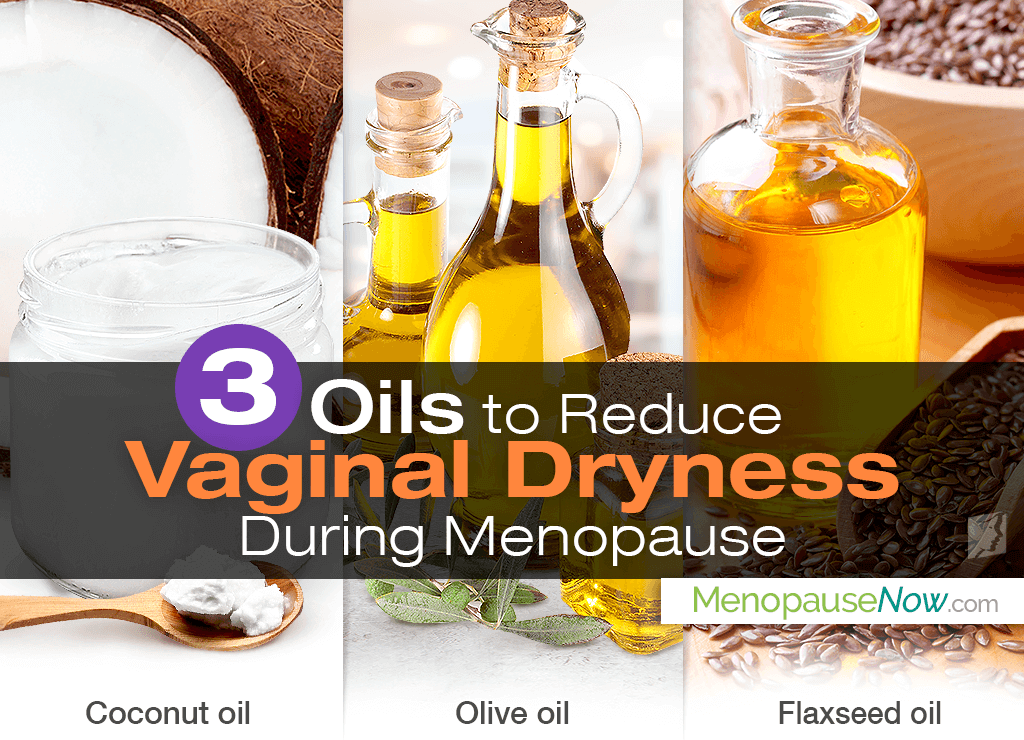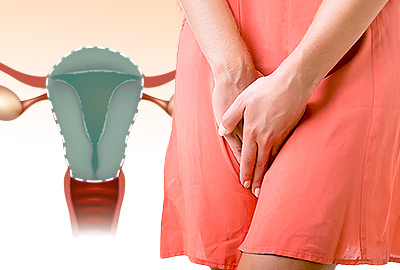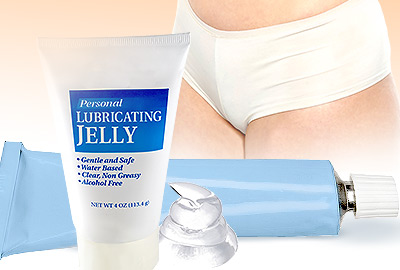Throughout the menopausal transition, imbalances of estrogen and progesterone cause a woman's vaginal tissues to become thin, lose elasticity, and secrete less moisture. This creates a sensation of dryness, which often comes with pain and itchiness. Luckily, managing vaginal dryness is easy with household oils for proper lubrication, hydration, and nourishment.
Continue reading to learn about the best oils for vaginal dryness so that you no longer feel distracted by the pain or itchiness in day-to-day life.
Coconut Oil
The phenolic compounds and fatty acids in coconut oil are lubricating and hydrating to the vaginal tissues to relieve dryness instantly.1 Coconut oil is antibacterial and an excellent source of antioxidant vitamin E to stimulate the natural secretion of moisture in the vaginal tissues and soothe irritations. It is also colorless and widely available, which makes using coconut oil for vaginal dryness one of the best options for menopausal women.
Olive Oil
Commonly found in kitchen pantries, olive oil is one of the best oils for vaginal dryness. The phenolic compounds and vitamin E in olive oil, including hydroxytyrosol and oleuropein, have a moisturizing effect on the genital tissues.2 Olive oil is also a staple in most people's kitchens, making it a convenient, go-to natural oil for vaginal dryness.
Flaxseed Oil
Flaxseed is member of the species Linum usitatissimum, and the oil extracted from the seeds is a significant source of omega-3 fatty acids and phytoestrogens.3 This is great for nourishing the vaginal tissues while the oil itself acts as a natural lubricant for dryness. Flaxseed's polyunsaturated fatty acids also have anti-inflammatory abilities, which can help reduce any pain, redness, and swelling.
Conclusions
While natural oils for vaginal dryness do provide a natural, efficient solution, they can degrade the latex in condoms, potentially weakening the protective barrier. As such, women should practice caution and research vaginal lubricants before making a purchase. Likewise, they are encouraged to explore a variety of natural and effective vaginal dryness treatments that will not only combat vaginal discomforts, but allay other menopausal symptoms.
Sources
- Agero, A.L. & Verallo-Rowell, V.M. (2004). A random double-blind controlled trial comparing extra virgin oil with mineral oil as a moisturizer for mild to moderate xerosis. Dermatitis, 15(3), 109-116. Retrieved April 4, 2019, from http://www.ncbi.nlm.nih.gov/pubmed/15724344
- Climacteric. (2016). Treating vulvovaginal atrophy/genitourinary syndrome of menopause: how important is vaginal lubricant and moisturizer composition? Retrieved February 4, 2020 from https://www.ncbi.nlm.nih.gov/pmc/articles/PMC4819835/
- Harvard Health Publishing. (2019). Don't ignore vaginal dryness and pain. Retrieved February 4, 2020 from https://www.health.harvard.edu/womens-health/dont-ignore-vaginal-dryness-and-pain
- Memorial Sloan Kettering Cancer Center. (2019). Improving your Vulvovaginal Health. Retrieved February 4, 2020 from https://www.mskcc.org/cancer-care/patient-education/vaginal-health
- University Health Network. (2019). Know How to Use Vaginal Moisturizers and Lubricants. Retrieved February 4, 2020 from https://www.uhn.ca/PatientsFamilies/Health_Information/Health_Topics/Documents/Know_How_to_Use_Vaginal_Moisturizers_Lubricants.pdf
- Visioli, F. & Galli, C. (2002). Biological properties of olive oil phytochemicals. Critical Reviews in Food Science and Nutrition, 42(3), 209-221. doi: 10.1080/10408690290825529
Footnotes:
- AIP Conference Proceedings. (2018). Phenolic and volatile compounds, antioxidant activity, and sensory properties of virgin coconut oil:Occurrence and their relationship with quality. Retrieved February 4, 2020 from https://aip.scitation.org/doi/abs/10.1063/1.5062818
- State of New South Wales. (2006). Chemistry and quality of olive oil. Prime Facts.Retrieved February 4, 2020 from http://www.dpi.nsw.gov.au/__data/assets/pdf_file/0003/87168/pf227-Chemistry-and-quality-of-olive-oil.pdf
- Avicenna Journal of Phytomedicine. (2016). Effects of flaxseed and Hypericum perforatum on hot flash, vaginal atrophy and estrogen-dependent cancers in menopausal women: a systematic review and meta-analysis. Retrieved February 4, 2020 from https://www.ncbi.nlm.nih.gov/pmc/articles/PMC4930534/




